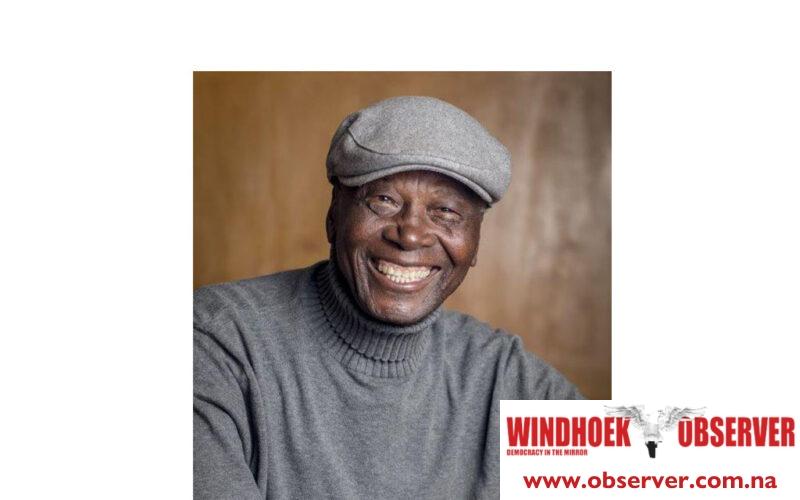Hertta-Maria Amutenya
Namibia will commemorate Hero’s Day on 26 August, a day set aside to remember the sacrifices of those who fought for the country’s independence.
Among the many remembered is Helao Joseph Shityuwete, a national hero whose journey from humble beginnings through the harsh realities of Robben Island to years of exile epitomises the struggle for freedom.
Shityuwete was born in a small Namibian village in 1941, where he first encountered the injustices of colonial rule.
At six, he lost his father and has vivid memories of the funeral and the rites. His upbringing was marked by his Aunt Beata, who became the most important adult in his life and raised him like her son.
His early education was at the Anglican school at St. Mary’s Odibo, where he met several people who became significant in his life, including Andimba Toivo ya Toivo, with whom he formed a lifelong bond.
Growing up, Shityuwete witnessed the harsh treatment of his people, instilling in him a deep sense of responsibility to fight for their rights.
His involvement in the liberation struggle began in his early twenties when he joined the movement that sought to end apartheid and achieve independence for Namibia.
He organised protests in the 1960s, leading up to his exile. He played a role in organising protests.
The apartheid regime’s repression and his involvement in anti-apartheid activities prompted him to leave Namibia and join the liberation struggle from outside the country.
In 1955, Shityuwete sought employment through the notorious contract labour system, often speaking of the dehumanising process.
His first contract was in Outjo, where he worked as a cleaner and general assistant.
Later, he took up a contract as a stevedore in Walvis Bay, where he connected his fight against injustice with the early political stirrings in the country.
In 1959, Shityuwete co-founded the Walvis Bay Branch of the Ovamboland People’s Organisation (OPO), focussing on workers’ rights and calling for an end to South Africa’s occupation of Namibia.
He received military training in Ghana in 1964.
Upon his return to Tanzania in 1965, he participated in retraining programs for SWAPO’s armed forces, where he was made 3rd secretary.
Shityuwete’s group, G2, left Tanzania in 1966 to prepare for guerrilla warfare in Namibia. Their journey was fraught with danger, and they were eventually betrayed.
On 26 March 1966, near Nkurenkuru, Shityuwete and his comrade Castro were ambushed, leading to their capture.
They were taken to Pretoria Central Prison, where they endured brutal torture.
In 1967, after years of detention, Shityuwete was sent to Robben Island, where he spent 16 years.
Despite the inhuman conditions, he and his fellow prisoners survived by challenging the system, befriending guards, and engaging in plays, sports, and education.
They even dug a tunnel to smuggle newspapers, which became a critical source of information.
Shityuwete was the first Namibian to receive a visitor on Robben Island—his Aunt Beata, who travelled alone from Endola to see him.
In 1976, the Namibians on Robben Island were joined by children arrested during the Soweto uprising, whom they took care of until their release.
After 18 years in detention, Shityuwete was finally released on 10 May 1984. He rejoined political activities in Windhoek but was frequently harassed.
In 1985, he fulfilled his wish to study, going to the UK to pursue a Postgraduate Diploma in Development Administration at the University of Birmingham.
He met his wife Jane there, and they married in December 1986.
In July 1989, with the implementation of Resolution 435, Shityuwete and Jacob Kashea led a large delegation of Namibian students in the UK back home to participate in the elections.
After Independence, Shityuwete joined the Ministry of Labour as Deputy Director, helping craft the Labour Act No. 6 of 1992—a fitting task for someone who started his political journey fighting the contract labour system.
After retiring in 1996, Shityuwete focused on ensuring his fellow former Robben Islanders were taken care of.
He became the national coordinator of the Namibia Former Robben Island Political Prisoners Trust.
He also engaged in consultancy work with NGOs and participated in projects documenting the history of the struggle, including the film “Paths to Freedom.”
Shityuwete delighted in being a family man, with his wife, children, and extended family. In 2017, he returned to the place of his birth in Angola for the first time, marking a full-circle moment in his life. His has been a long life of struggle and service, but also of learning, joy, and happiness—90 years well lived.
*This is an extract of his book ‘Never follow the Wolf’ which is available at https://www.namibiabooks.com/english-books/biographies-memoirs/product/1656-never-follow-the-wolf




